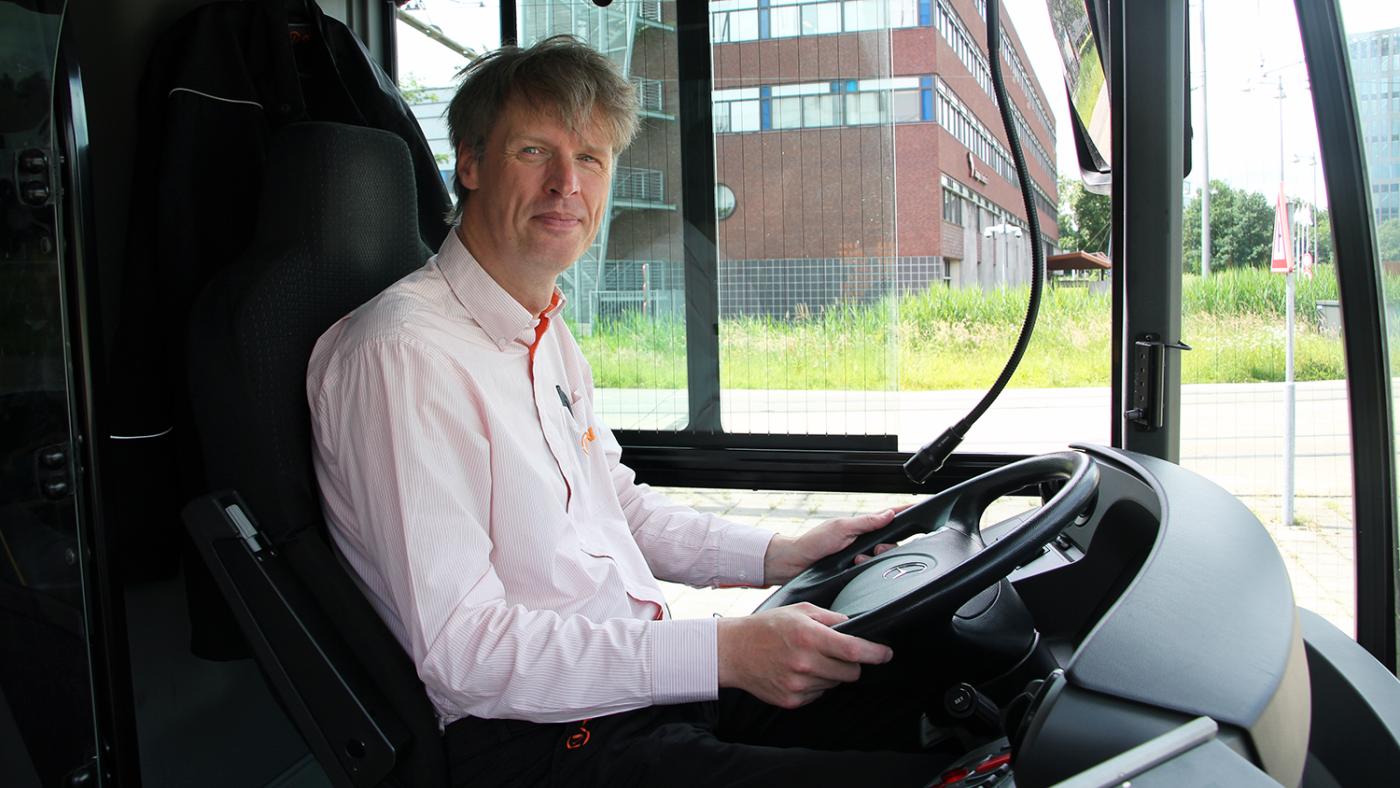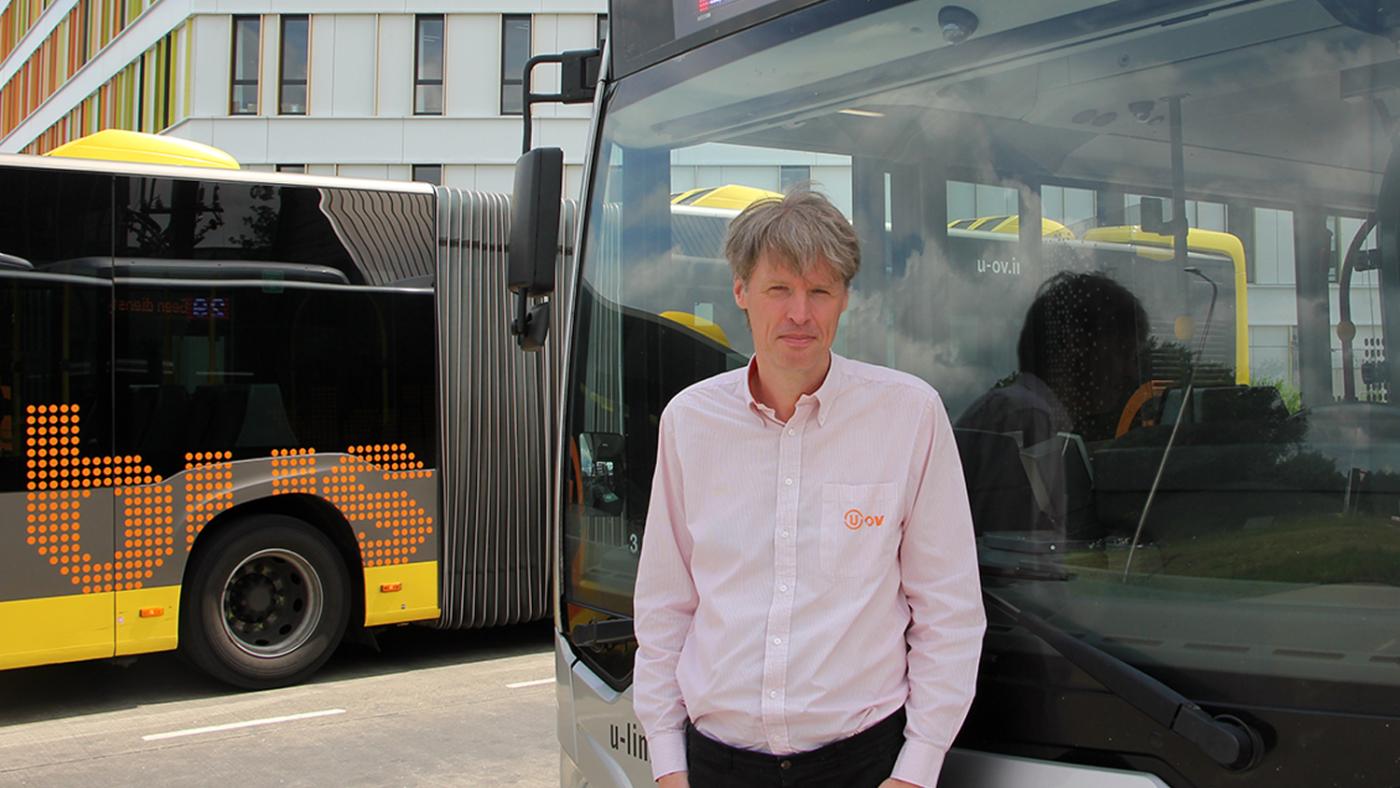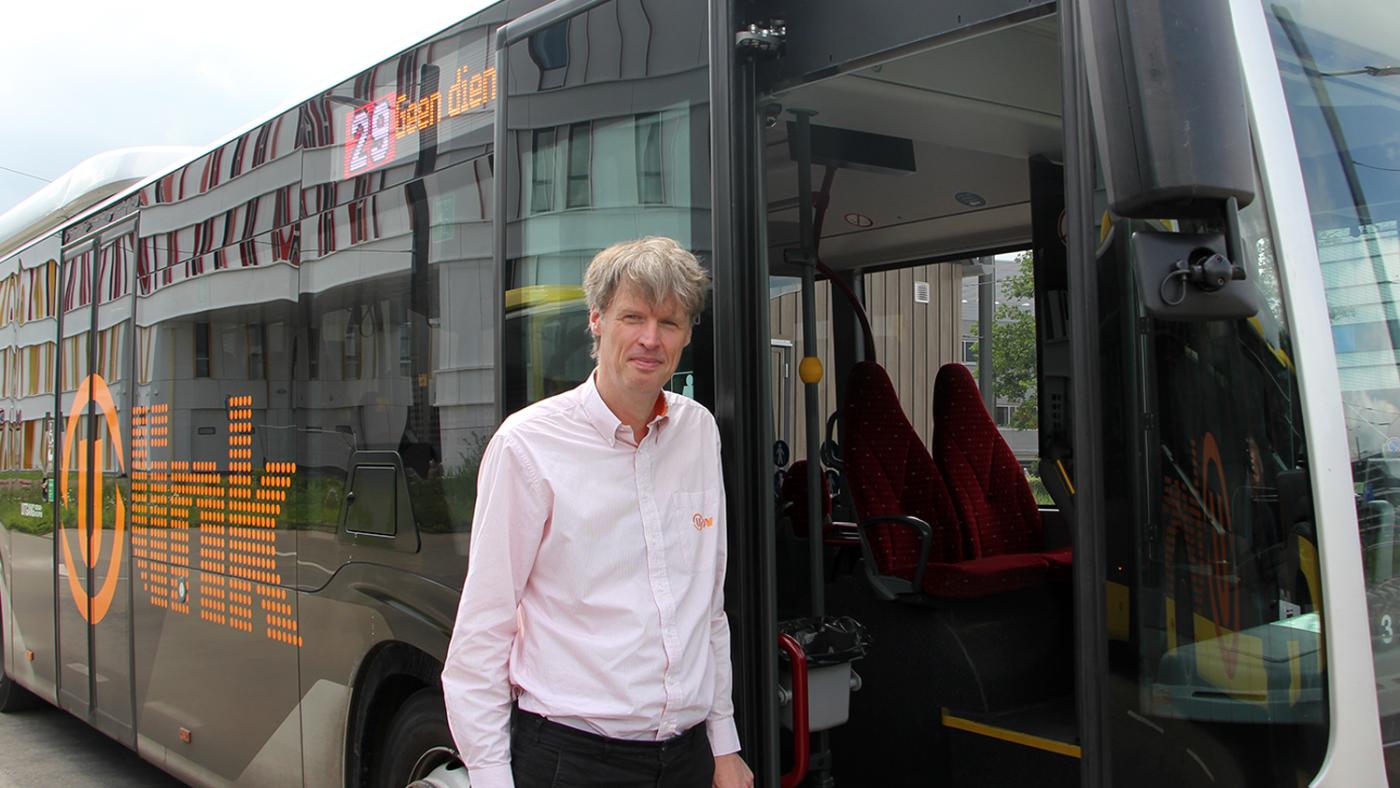Teacher, planner and bus driver
‘Acquiring some practical experience can be valuable for students’

When he was a Math student, Marcel van Kooten Niekerk made a travel planner for public transport, just for fun. “It worked well and Connexxion soon became interested. So, I developed the planner further for them and got my bus driver's license in the meantime.”
He ended up quitting his studies. “They were too theoretical. It lacked a practical side, so I started working for Connexxion full-time, as I was already working there as a temp. I love talking to passengers.” For a while, Van Kooten Niekerk drove the bus full-time, but soon he started working on planning as well. That's when he started developing a career that combines theory and practice.
Returning to college
Van Kooten Niekerk and two of his colleagues at Connexxion were asked to work on a complex problem. “We had a programme that could schedule two bus drivers automatically, but it wasn’t working. My two colleagues and I managed to make it work.” According to Van Kooten Niekerk, scheduling the drivers became a more efficient process thanks to their efforts, which saved Connexxion millions of euros.
After that, Van Kooten Niekerk became more and more interested in the computer systems behind the schedules, wanting to know how they worked. “I ran into Marjan van den Akker, Associated Professor of IT, at a conference in 2005. She asked me if I wanted to supervise students in their graduation research.” That ignited a spark in him, so he decided to return to university. “Thanks in part to my Math studies, I raced through the Bachelor in IT in a little over a year.”
But he wasn’t done learning, so he followed that degree with a Master’s and a PhD track. “As a PhD candidate, I researched a topic I was already familiar with: planning. I studied how to improve the schedule of my new employer, Q-Buzz. I wanted to develop a scheduling system that would be more efficient for bus drivers, passengers, and the company."

Electric buses
When electric buses were introduced, they posed a challenge to the scheduling system – one that Van Kooten Niekerk took on eagerly. “Qbuzz's computer programme couldn’t handle electric buses. There wasn’t a single programme that could at the time.” That's because electric buses can’t run all day: they have to be charged halfway through. “So, if you start driving at 6:00 am, they’ll be empty at around 10 am. Therefore, it’s better to start charging those buses early or only charge them partially.” For his PhD thesis, Van Kooten Niekerk developed a system that took that into account.
The system he developed has since been replaced by commercial software, but he’s still working on bus schedules every day. He rarely teaches. Most of the time, he works as a researcher for the Artificial Intelligence Lab. In total, there are fifteen AI Labs, each of them dedicated to a specific theme, such as police, media, or animal welfare. Van Kooten Niekerk works for the AI & Mobility Lab, supervising students’ graduation research. “The lab aims to encourage collaborations with corporations. The university, Prorail, NS, KLM, and Qbuzz work together so that organisations get access to scientific knowledge and we can offer a stepping stone for students, connecting them to future employers.”

Although the university is already combining theory and practice in that sense, Van Kooen Niekerk doesn't think it does that enough. “It’s incredibly valuable to gain practical experience while at university, so I would definitely recommend that to students. There is an added value to that even after you graduate."
Such added value is apparent in Van Kooten Niekerk’s work. “For instance, when coming up with bus drivers’ shifts, certain conditions must be met. They need to take a certain amount of breaks. When you put all those conditions together, you come up with a schedule with shifts that are perfect in theory, but terrible in practice.”
He knows that from personal experience. “I once had an eight-hour shift, which isn't bad in itself, but I had to drive for five minutes and then take a twenty-five-minute break. Then I had another five minutes of driving, followed by another twenty-five-minute break, and so on, throughout the day. The day felt never-ending.”
Although that is an extreme example, he says some shifts are definitely better than others. “It's great to be a driver who also works at the office as you experience things yourself and you hear from fellow drivers what the issues are. So, you are aware of them much sooner. If I just worked in the office, I would never have the practical knowledge I have now.”